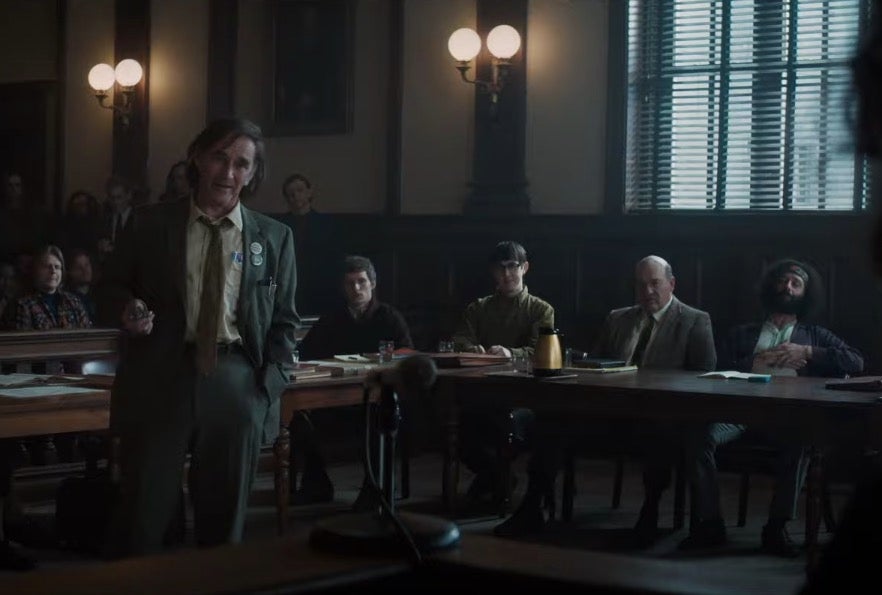What happened to the real Chicago 7 and where are they now?
New film tells the story of true events during the 1968 Democratic National Convention that sparked massive protests and a spectacle of a five-month court trial

Your support helps us to tell the story
From reproductive rights to climate change to Big Tech, The Independent is on the ground when the story is developing. Whether it's investigating the financials of Elon Musk's pro-Trump PAC or producing our latest documentary, 'The A Word', which shines a light on the American women fighting for reproductive rights, we know how important it is to parse out the facts from the messaging.
At such a critical moment in US history, we need reporters on the ground. Your donation allows us to keep sending journalists to speak to both sides of the story.
The Independent is trusted by Americans across the entire political spectrum. And unlike many other quality news outlets, we choose not to lock Americans out of our reporting and analysis with paywalls. We believe quality journalism should be available to everyone, paid for by those who can afford it.
Your support makes all the difference.Violent confrontations with police and tense days of protests amid a national political convention: what may sound like just another day in 2020 is actually the storyline for a new film based on real events from decades past.
The Trial of the Chicago 7 is the latest movie directed by Aaron Sorkin, with a scheduled release date in mid-October. It focuses on the riots that occurred at the 1968 Democratic National Convention and resulting five-month trial which drew national attention and originally involved eight political radicals.
As former President Lyndon B Johnson was set to accept his party’s nomination for re-election, protestors and activists were holding massive demonstrations just outside of Chicago’s International Amiptheatre.
Major recording artists and singers like Judy Collins were called as witnesses in what became high-profile spectacle of a trial.
The trial featured several notable figures, including Judge Julius Hoffman, who was thought to have handed down unusually harsh sentences on fight of the defendants. Those sentences were overturned two years later.
Bobby Seale, a cofounder of the Black Panther Party who was charged with four years in prison for contempt of court, had his case declared a mistrial after he served as his own defence. After his case was declared a mistrial, the remaining defendants then became known as the “Chicago Seven”.
Attorney William Kunstler, who represented the Chicago Seven, was said to have ignored typical court decorum as part of the group’s opposition to respecting the procedural norms.
At times, the trial became intense and rowdy. The defendants, who would reportedly come to court under the influence, reportedly shouted at one point: “This court is bullshit!”
Sorkin wrote the screenplay for the film about the anti-Vietnam War protests over ten years ago. The rights to the film have since been sold to Netflix, which will premiere the film on its streaming platforms.
The Chicago Seven includes Tom Hayden, a former California state senator; Abbie Hoffman, and Jerry Rubin, cofounders of the Yippie movement; Lee Weiner, a former Northwestern University research assistant; John Froines, former member of the Students for a Democratic Society at Yale University; and David Dellinger, a leading antiwar organiser.
According to AARP Magazine, Mr Dellinger passed away in 2004 at 88-years-old and Mr Rubin died in 1994 at 56-years-old. Mr Froines serves as a professor at UCLA, Mr Hayden is an author and Mr Weiner has worked for the Anti-Defamation League of B'nai B'rith in New York.

Join our commenting forum
Join thought-provoking conversations, follow other Independent readers and see their replies
Comments